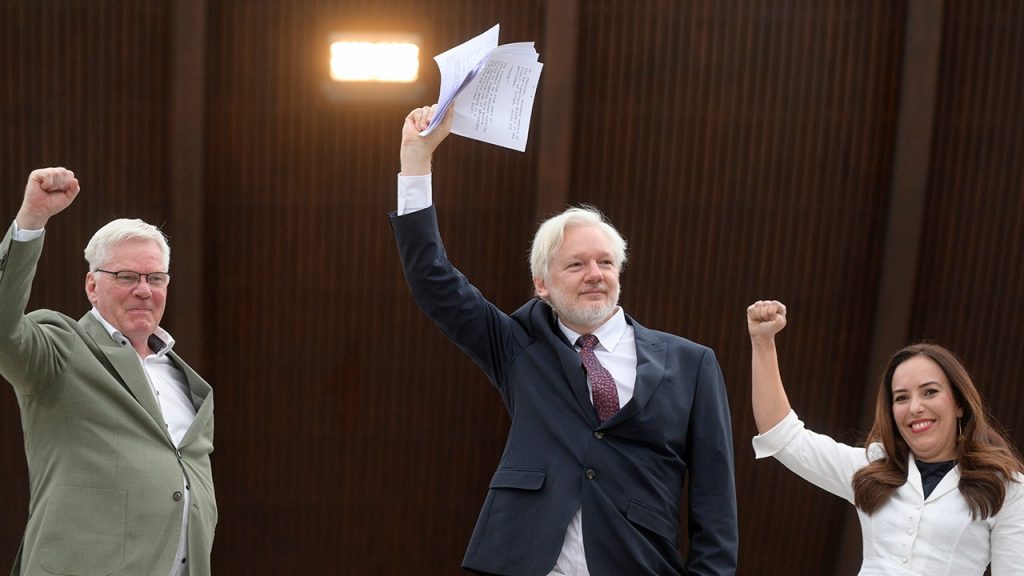WikiLeaks founder Julian Assange recently spoke publicly for the first time since his release from prison in June, addressing the legal affairs and human rights committee of the Parliamentary Assembly of the Council of Europe in Strasbourg, France. His supporters greeted him warmly as he arrived at the Council of Europe building to give evidence on the impact of his detention and conviction. Assange stated that he considered himself to be freed not because the system worked, but because he “pled guilty to journalism,” referring to his actions in seeking, obtaining, and publishing information from a source.
Assange spent five years in a British prison after pleading guilty to obtaining and publishing U.S. military secrets in a deal with Justice Department prosecutors. Prior to that, he had been in self-imposed exile in the Ecuadorian Embassy in London for seven years, claiming asylum due to political persecution. The transition from prison to addressing European parliamentarians was described by Assange as a profound and surreal shift, reflecting on the isolation and struggles he experienced during his incarceration. His activities with WikiLeaks, including publishing classified information on U.S. military wrongdoing in Iraq and Afghanistan, were celebrated by press freedom advocates for shedding light on important issues.
The case against Assange ended with him pleading guilty to an Espionage Act charge of conspiring to unlawfully obtain and disseminate classified national defense information. He was sentenced to the five years he had already spent behind bars in the U.K. fighting extradition to the U.S. Upon his release, Assange returned to Australia, where he needed time to recuperate before speaking publicly. The Council of Europe’s Parliamentary report on Assange’s detention in a high-security U.K. prison for five years led to the recognition of Assange as a political prisoner and expressed deep concern at the harsh treatment he endured.
Critics of Assange argue that his actions put American national security and innocent lives at risk by disclosing sensitive information, going beyond the traditional duties of journalism. However, supporters see his actions as crucial in exposing military misconduct and promoting transparency. Assange’s appearance before the Parliamentary Assembly highlighted the ongoing debate around press freedom, government transparency, and the rights of whistleblowers. His defiant attitude upon his release from prison and his continued advocacy for journalism as a form of seeking and sharing information underscore his commitment to the principles he believes in.
As the founder of WikiLeaks, Assange continues to be a polarizing figure, with supporters and critics alike debating the implications of his actions. The treatment of Assange during his time in prison and exile has drawn attention to issues of freedom of the press, government accountability, and the rights of individuals to challenge authority. His willingness to speak out despite the personal hardships he has faced reflects his dedication to his work and his belief in the importance of transparency and accountability in today’s society. Assange’s impact on journalism and government transparency will likely continue to be discussed and debated for years to come, as his case raises important questions about the balance between national security and freedom of information.


